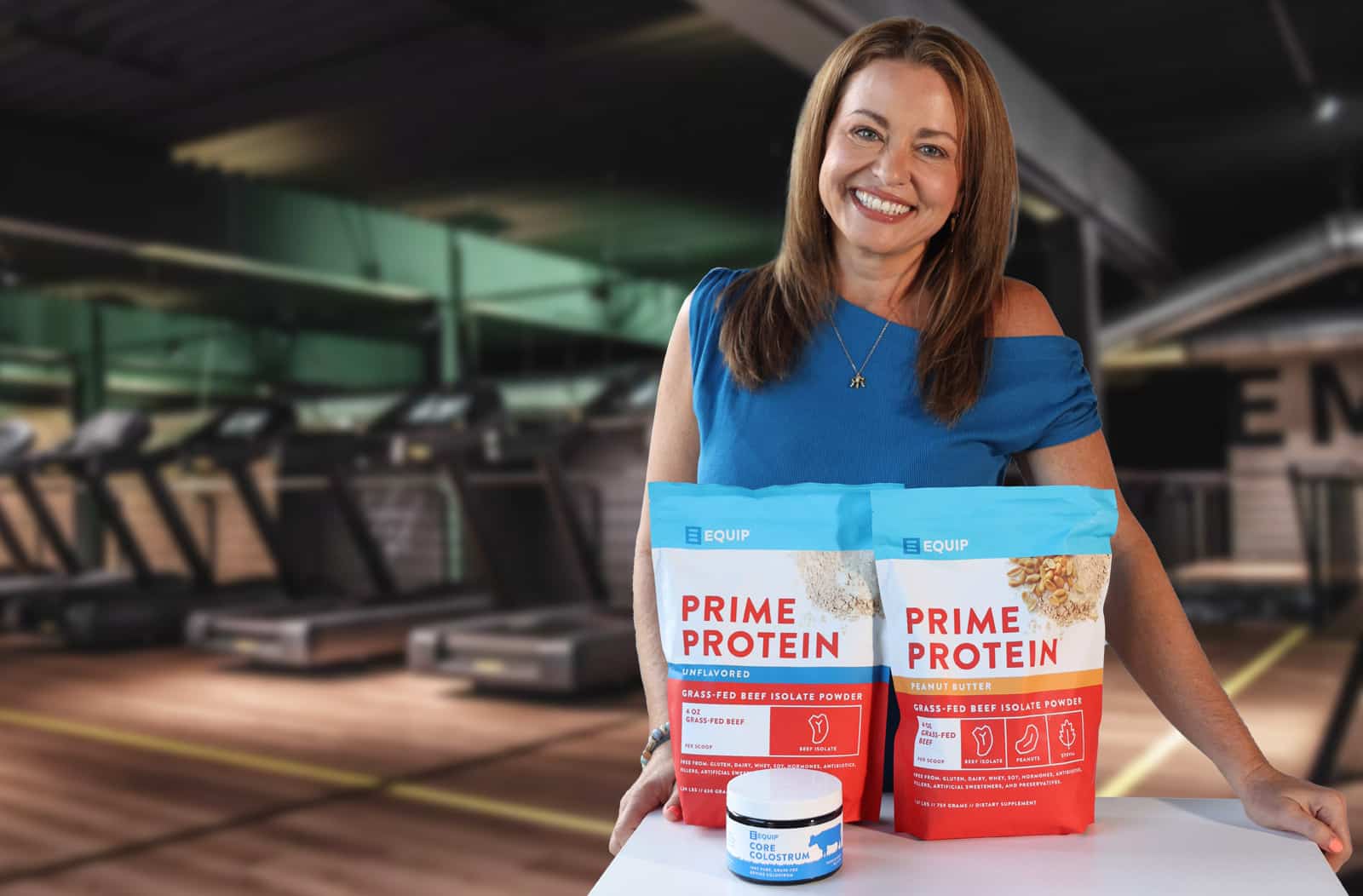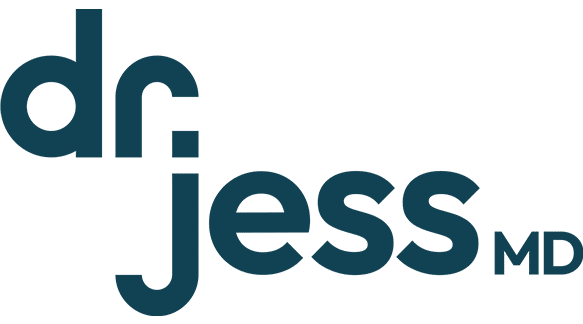Healing Journey Insights & Tools
- Home
- Blog
- Uncategorized
- Staying Strong After Menopause: Why Protein Is Key for Women’s Health
Staying Strong After Menopause: Why Protein Is Key for Women’s Health

As women transition into postmenopause, they face significant physiological changes, especially the accelerated loss of muscle mass and strength. This phenomenon, termed sarcopenia, is accompanied by an increase in fat mass, creating a condition known as sarcopenic obesity. These changes not only increase the risk of metabolic conditions like type 2 diabetes, cardiovascular disease, and osteoporosis but also elevate the likelihood of falls and fractures due to weakened muscles and reduced balance.
Maintaining muscle health is critical for postmenopausal women, and protein intake plays a vital role. However, as natural dietary protein consumption often falls short, many women supplement protein. When paired with resistance training (RT), protein powder has significantly improved muscle strength, lean body mass, and overall health in women aged 55 years and older. This blog explores the benefits of protein powder for postmenopausal women, reviews recent scientific research, and compares popular protein powder options to help you make informed decisions.
Hormonal Fluctuations and Protein Needs
Throughout their lives, women experience fluctuating hormone levels that directly impact how their bodies metabolize protein. During the menstrual cycle, the luteal phase – after ovulation—sees a rise in progesterone, a hormone that promotes protein breakdown to build the uterine lining. This catabolic state can lead to muscle breakdown if women are not consuming enough protein. In these high-hormone phases, slightly higher doses of protein are necessary to maintain muscle mass.
The decline in estrogen during peri- and post-menopause exacerbates muscle loss. Estrogen plays a vital role in maintaining muscle health, and its depletion during menopause leaves women more susceptible to sarcopenia. Without adequate protein intake, this muscle loss accelerates, leading to decreased strength and mobility. Hence, increased protein intake becomes critical in these stages of life.
Why Protein Matters for Postmenopausal Women
Protein is one of the most essential nutrients supporting muscle health, especially in older adults. As we age, the body’s ability to synthesize muscle proteins decreases. For women undergoing menopause, the loss of estrogen further accelerates muscle breakdown and increases fat mass. This reduction in muscle tissue is problematic because it contributes to reduced mobility, increased fatigue, and the risk of falls and fractures.
Research shows that older adults require higher protein intake than younger individuals to maintain muscle mass. The Recommended Dietary Allowance (RDA) for protein in healthy adults is typically around 0.8 grams per kilogram of body weight. Still, studies suggest that older adults, particularly postmenopausal women, benefit from intakes between 1.0 and 1.5 grams per kilogram of body weight daily. This increased requirement can be challenging to meet through diet alone, where protein powder supplementation can be particularly beneficial.
The Benefits of Protein Supplementation
Protein supplementation provides the necessary amino acids required to support muscle protein synthesis. Protein powders offer a convenient, low-calorie way to ensure adequate protein intake, and they can be easily integrated into a post-workout routine to support muscle repair and growth.
A 2021 study on postmenopausal women aged 55 and older demonstrated that protein supplementation significantly enhanced muscle strength and lean body mass, particularly when combined with resistance training. This systematic review and meta-analysis evaluated 14 randomized controlled trials (RCTs) involving postmenopausal women. The results showed that women supplemented with protein powder and engaged in regular resistance training experienced marked improvements in biceps curl strength (BC) and lower limb lean mass (LLLM) compared to those who did not use protein supplements. The study also highlighted that protein supplementation alone did not yield significant improvements in muscle mass or strength without resistance training, reinforcing the importance of combining protein intake with exercise.
The research concluded that protein supplementation enhances both muscle strength and functional capacity when paired with resistance training, offering postmenopausal women a simple yet powerful tool to combat the effects of aging on muscle health.
Protein Requirements During Menopause
The recommended protein intake for post-menopausal women is higher than for younger adults. The traditional Recommended Dietary Allowance (RDA) for protein is 0.8 grams per kilogram of body weight. However, research suggests that women in their post-menopausal years should aim for 1.0 to 1.5 grams per kilogram to maintain muscle health. This heightened protein requirement stems from age-related anabolic resistance, where the body uses protein to build muscle less efficiently.
In addition to increasing overall protein intake, post-menopausal women should focus on consuming high-quality proteins rich in essential amino acids, particularly leucine. Leucine is a critical amino acid that promotes muscle protein synthesis, making it a crucial component of any post-menopausal diet.
Save 15% off Equip Foods with Code DRJESS, Click Here
The Role of Protein in Preventing Age-Related Muscle Loss
As women age, they become more vulnerable to conditions like sarcopenia, the gradual loss of muscle mass and strength. Sarcopenia increases the risk of falls, fractures, and reduced mobility, making it a significant concern for post-menopausal women. Adequate protein intake can help mitigate this risk by supporting muscle maintenance and slowing the progression of muscle loss.
Research on protein intake and muscle health in older adults shows that higher protein consumption can significantly reduce muscle loss. A 2016 study published in the Journal of Nutrition found that older adults with more protein had 40% less muscle loss over three years than those with lower protein intakes. For post-menopausal women, this research reinforces the need to prioritize protein to maintain strength, mobility, and overall quality of life.
Types of Protein Powders for Postmenopausal Women
When it comes to protein supplementation, there are various options to consider. Let’s compare the most common types of protein powders:
Whey Protein:
- Fast Absorption: Whey protein is known for its rapid digestion and high bioavailability, making it ideal for post-workout recovery.
- High Leucine Content: Whey is particularly rich in leucine, a branched-chain amino acid (BCAA) that plays a crucial role in muscle protein synthesis. Leucine triggers muscle growth and repair, making whey protein highly effective for promoting muscle health.
- Scientific Backing: Numerous studies, including the 2021 meta-analysis, support whey protein’s effectiveness in increasing muscle strength and lean mass, especially when combined with resistance training. For postmenopausal women, whey protein offers an efficient way to maintain muscle health and improve recovery from workouts.
- However, some women may experience digestive discomfort from whey protein, mainly if they are lactose intolerant or sensitive to dairy. Plant-based or whole-food protein powders may be a better option for those individuals.
Plant-Based Protein Powders (Pea, Hemp, Brown Rice):
- Vegan-Friendly: For women following a plant-based diet or those with lactose intolerance, plant-based protein powders like pea, hemp, or brown rice protein offer excellent alternatives to whey.
- Slower Absorption: Plant-based proteins are generally digested more slowly than whey, which can sustain amino acid release throughout the day. This makes them an excellent option for maintaining satiety and supporting muscle health over extended periods.
- Complete Protein: While many plant-based proteins do not contain the full spectrum of essential amino acids, combining different plant sources (such as peas and rice) can create a complete protein profile.
Whole-Food-Based Protein Powders (Equip Foods):
- Minimal Processing: Equip Foods offers protein powders made from whole foods, like beef protein, without additives, fillers, or artificial ingredients. These powders appeal to those who prioritize clean, minimally processed products.
- Sustained Release: Whole-food protein powders are absorbed more slowly than whey, providing a steady release of amino acids over time. This may benefit women looking to avoid blood sugar spikes or those sensitive to faster-digesting proteins.
- Nutritional Quality: Equip Foods protein powders contain all essential amino acids and offer a rich source of nutrients, making them a good option for women seeking a more natural, whole-food-based approach to protein supplementation.
Comparing Protein Powders: What Does the Research Say?
The 2021 meta-analysis of WP and RT among postmenopausal women emphasizes the importance of the synergy between protein supplementation and exercise. Women supplemented with protein powder and engaged in resistance training experienced significant gains in muscle strength and lean mass. In contrast, those who only used protein supplements without RT saw limited benefits. This finding underscores the need for a holistic approach that combines nutrition and physical activity to achieve optimal results.
While many studies highlight whey protein due to its rapid digestion and effectiveness, it’s essential to consider other options that may better suit individual preferences and dietary restrictions. For example, though slower-digesting, Equip Foods’ beef protein powder offers a clean, minimally processed option rich in essential amino acids and free from common allergens like lactose. This makes it an excellent alternative for women who may experience bloating or discomfort from whey or who prioritize whole-food-based nutrition.
Save 15% off Equip Foods with Code DRJESS, Click Here
Practical Tips for Using Protein Powder
To maximize the benefits of protein powder supplementation, here are a few tips for postmenopausal women:
- Incorporate Resistance Training: Pair protein supplementation with regular RT to support muscle growth and strength. Aim for at least two to three weekly resistance workouts, targeting all major muscle groups.
- Time Your Intake: Consuming protein shortly after a workout (within 30 minutes to an hour) helps maximize muscle protein synthesis and aids in recovery.
- Adjust for Your Needs: When selecting a powder, consider your dietary preferences, digestive sensitivities, and protein needs. If you follow a plant-based diet, combine pea and rice proteins to ensure you get all essential amino acids.
- Stay Hydrated: Drink plenty of water, especially when using protein powders, to support digestion and nutrient absorption.
How I Take Protein to Boost My Energy and Stay Strong
As a 45-year-old woman, staying active is a huge part of my life. Between strength training at the gym, walking my dog by the beach, and consistently attending hot yoga, I need the right fuel to keep my energy up. I’ve found that adding Equip Foods Prime Protein to my routine has been a game-changer. I blend it into a smoothie daily with organic fruits and filtered water. It helps me meet my protein goals, recover faster after workouts, and maintain lean muscle mass, which is especially important as I age. I’ve noticed my energy levels are higher, my body feels stronger, and I feel more youthful overall. Incorporating this protein has supported my physical performance and overall well-being.
Conclusion: Is Protein Powder Right for You?
For postmenopausal women looking to maintain muscle mass, improve strength, and enhance overall health, protein powder is an excellent tool when paired with resistance training. Whether you choose whey, plant-based, or whole-food-based options like Equip Foods, the key is to find a product that aligns with your dietary needs and fitness goals. Combining protein supplementation with a consistent exercise routine can help you stay strong, active, and healthy into your later years.
For more information about clean, whole-food protein options, visit Equip Foods and use code DRJESS to save 15%.
References:
National Center for Biotechnology Information (NCBI). “Whey Protein Supplementation and Muscle Health in Postmenopausal Women.” Available at: [https://www.ncbi.nlm.nih.gov/pmc/articles/PMC9572824/]
Real Progress From
Real People
FREE CARE Plan eBOOK by Dr. Jess, MD.
This system mirrors Dr. Jess MD's steps with patients in her virtual clinic. It’s not a diagnosis, it’s a roadmap; a step-by-step process designed to help people restore function, remove roadblocks, and rebuild resilience.


